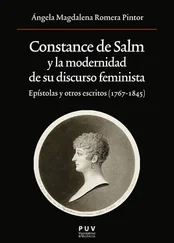Constance Woolson - Solomon
Здесь есть возможность читать онлайн «Constance Woolson - Solomon» — ознакомительный отрывок электронной книги совершенно бесплатно, а после прочтения отрывка купить полную версию. В некоторых случаях можно слушать аудио, скачать через торрент в формате fb2 и присутствует краткое содержание. Жанр: foreign_prose, на английском языке. Описание произведения, (предисловие) а так же отзывы посетителей доступны на портале библиотеки ЛибКат.
- Название:Solomon
- Автор:
- Жанр:
- Год:неизвестен
- ISBN:нет данных
- Рейтинг книги:5 / 5. Голосов: 1
-
Избранное:Добавить в избранное
- Отзывы:
-
Ваша оценка:
- 100
- 1
- 2
- 3
- 4
- 5
Solomon: краткое содержание, описание и аннотация
Предлагаем к чтению аннотацию, описание, краткое содержание или предисловие (зависит от того, что написал сам автор книги «Solomon»). Если вы не нашли необходимую информацию о книге — напишите в комментариях, мы постараемся отыскать её.
Solomon — читать онлайн ознакомительный отрывок
Ниже представлен текст книги, разбитый по страницам. Система сохранения места последней прочитанной страницы, позволяет с удобством читать онлайн бесплатно книгу «Solomon», без необходимости каждый раз заново искать на чём Вы остановились. Поставьте закладку, и сможете в любой момент перейти на страницу, на которой закончили чтение.
Интервал:
Закладка:
Woolson Constance Fenimore
Solomon
SOLOMON
MIDWAY in the eastern part of Ohio lies the coal country; round-topped hills there begin to show themselves in the level plain, trending back from Lake Erie; afterwards rising higher and higher, they stretch away into Pennsylvania and are dignified by the name of Alleghany Mountains. But no names have they in their Ohio birthplace, and little do the people care for them, save as storehouses for fuel. The roads lie along the slow-moving streams, and the farmers ride slowly over them in their broad-wheeled wagons, now and then passing dark holes in the bank from whence come little carts into the sunshine, and men, like silhouettes , walking behind them, with glow-worm lamps fastened in their hat-bands. Neither farmers nor miners glance up towards the hilltops; no doubt they consider them useless mounds, and, were it not for the coal, they would envy their neighbors of the grain-country whose broad, level fields stretch unbroken through Central Ohio; as, however, the canal-boats go away full, and long lines of coal-cars go away full, and every man's coal-shed is full, and money comes back from the great iron-mills of Pittsburgh, Cincinnati, and Cleveland, the coal country, though unknown in a picturesque point of view, continues to grow rich and prosperous.
Yet picturesque it is, and no part more so than the valley where stands the village of the quaint German Community on the banks of the slow-moving Tuscarawas River. One October day we left the lake behind us and journeyed inland, following the water-courses and looking forward for the first glimpse of rising ground; blue are the waters of Erie on a summer day, red and golden are its autumn sunsets, but so level, so deadly level are its shores that, at times, there comes a longing for the sight of distant hills. Hence our journey. Night found us still in the 'Western Reserve.' Ohio has some queer names of her own for portions of her territory, the 'Fire Lands,' the 'Donation Grant,' the 'Salt Section,' the 'Refugee's Tract,' and the 'Western Reserve' are names well known, although not found on the maps. Two days more and we came into the coal country; near by were the 'Moravian Lands,' and at the end of the last day's ride we crossed a yellow bridge over a stream called the 'One-Leg Creek.'
'I have tried in vain to discover the origin of this name,' I said, as we leaned out of the carriage to watch the red leaves float down the slow tide.
'Create one, then. A one-legged soldier, a farmer's pretty daughter, an elopement in a flat-bottomed boat, and a home upon this stream which yields its stores of catfish for their support,' suggested Erminia.
'The original legend would be better than that if we could only find it, for real life is always better than fiction,' I answered.
'In real life we are all masked; but in fiction the author shows the faces as they are, Dora.'
'I do not believe we are all masked, Erminia. I can read my friends like a printed page.'
'O, the wonderful faith of youth!' said Erminia, retiring upon her seniority.
Presently the little church on the hill came into view through a vista in the trees. We passed the mill and its flowing race, the blacksmith's shop, the great grass meadow, and drew up in front of the quaint hotel where the trustees allowed the world's people, if uninquisitive and decorous, to remain in the Community for short periods of time, on the payment of three dollars per week for each person. This village was our favorite retreat, our little hiding-place in the hill-country; at that time it was almost as isolated as a solitary island, for the Community owned thousands of outlying acres and held no intercourse with the surrounding townships. Content with their own, unmindful of the rest of the world, these Germans grew steadily richer and richer, solving quietly the problem of co-operative labor, while the French and Americans worked at it in vain with newspapers, orators, and even cannon to aid them. The members of the Community were no ascetic anchorites; each tiled roof covered a home with a thrifty mother and train of grave little children, the girls in short-waisted gowns, kerchiefs, and frilled caps, and the boys in tailed coats, long-flapped vests, and trousers, as soon as they were able to toddle. We liked them all, we liked the life; we liked the mountain-high beds, the coarse snowy linen, and the remarkable counterpanes; we liked the cream stewed chicken, the Käse-lab, and fresh butter, but, best of all, the hot bretzels for breakfast. And let not the hasty city imagination turn to the hard, salty, saw-dust cake in the shape of a broken-down figure eight which is served with lager-beer in saloons and gardens. The Community bretzel was of a delicate flaky white in the inside, shading away into a golden-brown crust of crisp involutions, light as a feather, and flanked by little pats of fresh, unsalted butter, and a deep-blue cup wherein the coffee was hot, the cream yellow, and the sugar broken lumps from the old-fashioned loaf, now alas! obsolete.
We stayed among the simple people and played at shepherdesses and pastorellas; we adopted the hours of the birds, we went to church on Sunday and sang German chorals as old as Luther. We even played at work to the extent of helping gather apples, eating the best, and riding home on top of the loaded four-horse wains. But one day we heard of a new diversion, a sulphur-spring over the hills about two miles from the hotel on land belonging to the Community; and, obeying the fascination which earth's native medicines exercise over all earth's children, we immediately started in search of the nauseous spring. The road wound over the hill, past one of the apple-orchards, where the girls were gathering the red fruit, and then down a little declivity where the track branched off to the Community coal-mine; then a solitary stretch through the thick woods, a long hill with a curve, and at the foot a little dell with a patch of meadow, a brook, and a log-house with overhanging root, a forlorn house unpainted and desolate. There was not even the blue door which enlivened many of the Community dwellings. 'This looks like the huts of the Black Forest,' said Erminia. 'Who would have supposed that we should find such an antique in Ohio!'
'I am confident it was built by the M. B.'s,' I replied. 'They tramped, you know, extensively through the State, burying axes and leaving every now and then a mastodon behind them.'
'Well, if the Mound-Builders selected this site they showed good taste,' said Erminia, refusing, in her afternoon indolence, the argumentum nonsensicum with which we were accustomed to enliven our conversation. It was, indeed, a lovely spot, – the little meadow, smooth and bright as green velvet, the brook chattering over the pebbles, and the hills, gay in red and yellow foliage, rising abruptly on all sides. After some labor we swung open the great gate and entered the yard, crossed the brook on a mossy plank, and followed the path through the grass towards the lonely house. An old shepherd-dog lay at the door of a dilapidated shed, like a block-house, which had once been a stable; he did not bark, but, rising slowly, came along beside us, – a large, gaunt animal that looked at us with such melancholy eyes that Erminia stooped to pat him. Ermine had a weakness for dogs; she herself owned a wild beast of the dog kind that went by the name of the 'Emperor Trajan'; and, accompanied by this dignitary, she was accustomed to stroll up the avenues of C – , lost in maiden meditations.
We drew near the house and stepped up on the sunken piazza, but no signs of life appeared. The little loophole windows were pasted over with paper, and the plank door had no latch or handle. I knocked, but no one came. 'Apparently it is a haunted house, and that dog is the spectre,' I said, stepping back.
Читать дальшеИнтервал:
Закладка:
Похожие книги на «Solomon»
Представляем Вашему вниманию похожие книги на «Solomon» списком для выбора. Мы отобрали схожую по названию и смыслу литературу в надежде предоставить читателям больше вариантов отыскать новые, интересные, ещё непрочитанные произведения.
Обсуждение, отзывы о книге «Solomon» и просто собственные мнения читателей. Оставьте ваши комментарии, напишите, что Вы думаете о произведении, его смысле или главных героях. Укажите что конкретно понравилось, а что нет, и почему Вы так считаете.












